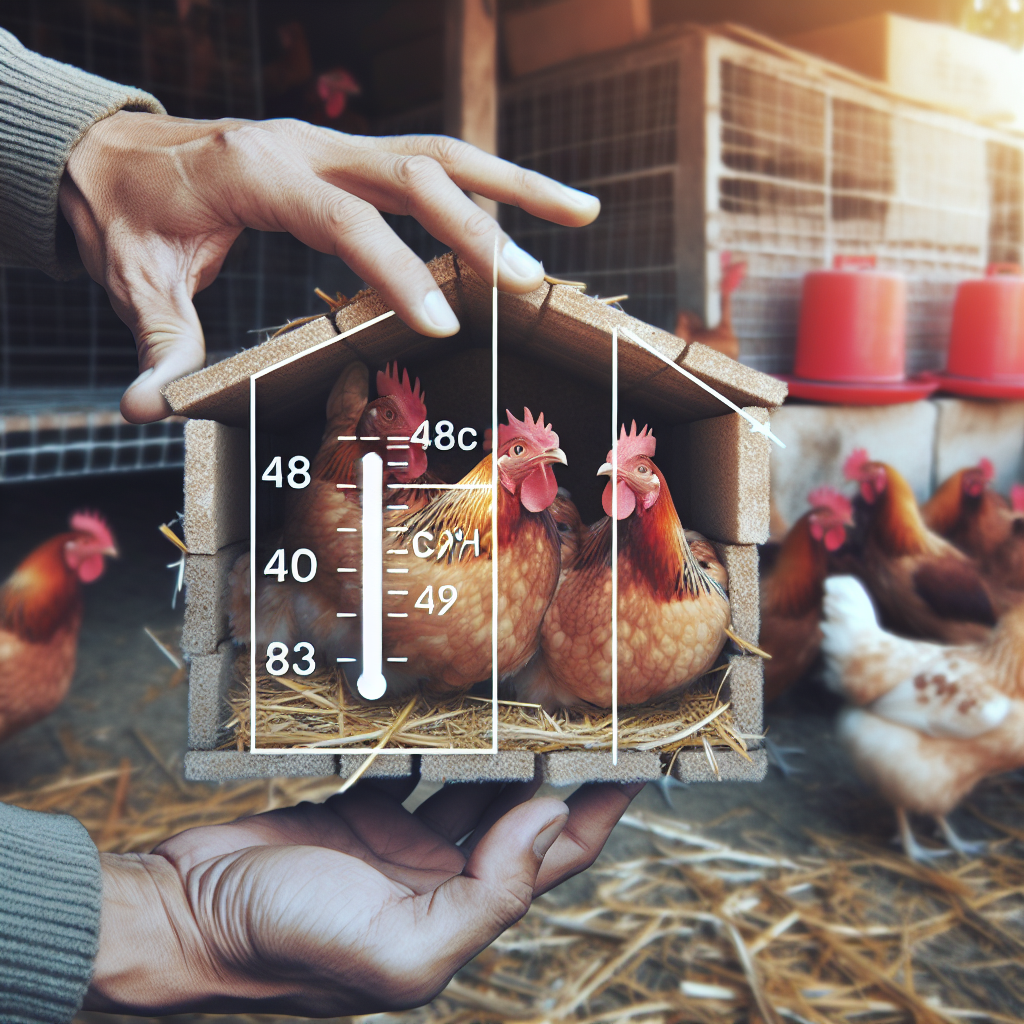When it comes to taking care of chickens, it’s easy for beginners to make some common mistakes. From not providing the right food to neglecting coop cleanliness, these errors can lead to unhappy and unhealthy chickens. In this article, we’ll explore some practical tips to help you recognize and prevent these beginner mistakes in chicken care. Whether you’re a novice or someone looking to brush up on your chicken keeping skills, you’ll find valuable advice to ensure the well-being of your feathered friends. So, let’s dive in and give your chickens the care they truly deserve!
Common Beginner Mistakes in Chicken Care
Lack of Research
One common mistake that beginners often make when it comes to chicken care is a lack of research. Keeping chickens requires a certain level of knowledge and understanding of their needs, habits, and behaviors. Without conducting proper research beforehand, you may be ill-equipped to address their specific needs, resulting in potential health issues or other problems down the line. Therefore, it is essential to gather information about raising chickens, such as their dietary requirements, suitable living conditions, and common health issues they may encounter.
Inadequate Housing
Another common beginner mistake is providing inadequate housing for chickens. It is crucial to provide a safe and comfortable living environment for your chickens to thrive. A poorly designed coop or run can lead to a range of issues, including overcrowding, lack of ventilation, and exposure to predators. Make sure the coop is spacious enough to accommodate the number of chickens you have, secure against potential threats, and well-ventilated to prevent respiratory issues. Additionally, proper bedding and perches should be provided to ensure their comfort.
Poor Nutrition
Chickens, like any living creatures, require a balanced and nutritious diet to maintain their health and well-being. Some beginners may unknowingly provide an improper diet, which can lead to various health problems. It is important to feed your chickens a diet that consists of high-quality commercial feed specifically formulated for their needs. Additionally, supplementing their diet with fresh fruits, vegetables, and occasional treats can provide additional nutrients and promote overall health.
Improper Health Care
Beginners often overlook the importance of proper health care for their chickens. Regular health check-ups are essential to detect any potential health issues early on. This includes examining their overall appearance, comb and wattle condition, eyes, feathers, and behavior. Additionally, implementing a vaccination schedule and deworming regimen can prevent common diseases and parasites. Consulting with a veterinarian who specializes in poultry care can provide valuable guidance and ensure your chickens receive the necessary care they require.
Incorrect Handling
Handling chickens incorrectly is another common mistake made by beginners. Chickens can be sensitive animals and should be handled with care and gentleness. Rough or improper handling can cause them stress, injury, or even death. To handle a chicken safely, scoop them up with one hand supporting their body and the other hand gently securing their wings. Avoid grabbing or pulling on their feathers, as this can be painful and cause feather damage. By handling chickens correctly, you can establish trust and ensure their well-being.
Failure to Provide Enrichment
Chickens are naturally curious and intelligent animals that require mental stimulation and enrichment. Neglecting to provide them with suitable activities and environmental enrichment can lead to boredom, stress, and even aggressive behaviors. Simple additions such as perches, toys, and even access to natural elements like grass and soil can keep chickens entertained and engaged. Incorporating food puzzles or hiding treats throughout their space can also encourage natural foraging behaviors and provide mental stimulation.
Disregarding Socialization Needs
Chickens are highly social animals that thrive in a community. Failing to provide adequate social interaction can cause loneliness and behavioral issues in chickens. It is important to have a flock size that allows for natural socialization and prevents isolation. Additionally, introducing new chickens to an existing flock should be done gradually and with caution to avoid conflicts. Providing roosting bars or platforms at various heights can also promote socialization and establish a natural pecking order within the flock.
Overcrowding
Overcrowding is a mistake that can have severe consequences on the health and well-being of your chickens. When too many chickens are confined to a limited space, it can lead to increased stress, aggression, and the spread of diseases. The recommended amount of space per chicken is approximately 4 square feet in the coop and 8-10 square feet in the run. Ensuring that your chickens have enough space to move around freely, spread their wings, and engage in natural behaviors is crucial for their overall health.
Neglecting Biosecurity
Biosecurity is often overlooked by beginners, but it plays a vital role in preventing the spread of diseases and parasites. Failing to implement proper biosecurity measures can result in a significant threat to the health of your flock. It is crucial to keep the coop clean and sanitized regularly, provide clean and fresh water, and separate sick or injured birds from the rest of the flock. Additionally, limiting access to your chicken area to minimize contact with other animals and regularly inspecting new additions for potential diseases are essential biosecurity practices.
Not Monitoring Behavioral Changes
Monitoring your chickens’ behavior is essential for recognizing any potential issues early on. Sudden changes in behavior, such as lethargy, aggression, or excessive vocalization, may indicate underlying health problems or environmental stressors. By paying attention to their behaviors and body language, you can quickly identify any changes and take appropriate measures to address them. Regular observation and interaction with your chickens will help you develop a deeper understanding of their individual personalities and detect any abnormalities in their behavior.
Recognizing Common Beginner Mistakes
Unusual Behavior
Recognizing and interpreting unusual behavior in chickens is crucial for identifying potential problems. Some common signs of unusual behavior may include excessive pecking, feather pulling, lack of appetite, lethargy, or a sudden decrease in egg production. These behaviors may indicate health issues, stress, or inadequate living conditions. By closely monitoring your chickens and familiarizing yourself with their typical behavior, you can quickly recognize any abnormal behaviors and take appropriate action.
Physical Signs of Illness
In addition to observing their behavior, it is important to be aware of the physical signs of illness in chickens. Some common signs include abnormal droppings, discharge from the eyes or nostrils, pale comb or wattles, weight loss, swollen joints, or unusual breathing sounds. These physical symptoms may indicate various health conditions, including respiratory infections, parasites, or nutrient deficiencies. Regularly inspecting your chickens for any abnormalities or changes in their physical appearance is essential for catching and addressing health issues early on.
Changes in Egg Production
One of the primary reasons people keep chickens is for their eggs. Therefore, monitoring their egg production is crucial for detecting any potential problems. A sudden decrease in egg production or abnormal eggs, such as soft shells or irregular shapes, may indicate health issues or nutritional imbalances. While fluctuations in egg production due to seasonal changes are common, significant and persistent changes should be investigated further. By keeping track of the number and quality of eggs your chickens lay, you can easily spot any changes and address them promptly.
Feather Problems
Feathers play a crucial role in protecting chickens and regulating their body temperature. Therefore, any issues with their feathers should be taken seriously. Problems such as feather loss, broken feathers, or excessively dirty or matted feathers may indicate health issues, parasites, or poor living conditions. Regularly inspecting your chickens’ feathers and providing a clean and dust-free environment can help prevent feather problems. Additionally, ensuring a well-balanced diet rich in essential nutrients and practicing good hygiene can contribute to healthy feather growth and appearance.
Injuries or Pecking Order Issues
Chickens have a natural pecking order, which can sometimes result in aggression or injuries within the flock. It is essential to be vigilant for any signs of injuries, such as wounds, bleeding, or missing feathers. Aggressive pecking can be a sign of dominance struggles or overcrowding. Addressing pecking order issues promptly by providing adequate space and enrichment, as well as separating severely injured or targeted individuals, can help prevent further injuries and restore harmony within the flock.
Preventing Common Beginner Mistakes
Thorough Research and Education
To prevent common beginner mistakes in chicken care, thorough research and education are vital. Before getting chickens, take the time to learn about their specific needs, behaviors, and requirements. Familiarize yourself with various aspects of chicken care, including appropriate housing, nutrition, health care, and handling techniques. There are numerous books, online resources, and local poultry clubs that can provide valuable information and guidance. By arming yourself with knowledge, you will be better prepared to provide the best care for your chickens.
Properly Designed Coop and Run
Investing in a properly designed and constructed coop and run is essential for the well-being of your chickens. Ensure that the coop provides adequate space for your chickens and is well-ventilated, predator-proof, and easy to clean. The run should have secure fencing and ample space for your chickens to move around, scratch, peck, and dustbathe. Including features such as perches, nesting boxes, and shade will provide additional comfort and stimulate natural behaviors. By providing a safe and functional living environment, you can prevent many potential issues and promote the overall health of your flock.
Balanced Diet and Supplements
Feeding your chickens a balanced and nutritious diet is essential for their health and productivity. High-quality commercial chicken feed should be the foundation of their diet. It is specifically formulated to provide the necessary nutrients and energy for their growth, egg production, and overall well-being. Additionally, supplementing their diet with fresh fruits, vegetables, and kitchen scraps can offer additional nutrients and variety. Some supplements, such as calcium for proper eggshell formation, may also be necessary. Consult with a poultry nutritionist or veterinarian to ensure your chickens are receiving a well-rounded diet.
Regular Health Check-ups
Regular health check-ups are essential for maintaining the health and well-being of your chickens. Establish a relationship with a veterinarian who specializes in poultry care to receive guidance and schedule routine check-ups. During these check-ups, the veterinarian will examine your chickens’ overall health, assess their body condition, and address any concerns or potential issues. Regular vaccinations and deworming should also be included in the health care routine. By being proactive about your chickens’ health, you can prevent many common illnesses and ensure their longevity.
Cautious and Gentle Handling
Proper handling techniques are crucial for the well-being of your chickens. When handling chickens, it is important to be gentle, calm, and cautious. Approach them slowly and confidently, using both hands to support their body. Avoid grabbing or pulling on their feathers, as this can cause pain and stress. If your chickens are not used to being handled, gradually introduce them to human interaction through positive reinforcement and treats. By establishing trust and using appropriate handling techniques, you can minimize stress and build a bond with your chickens.
Environmental Enrichment
Providing environmental enrichment is essential for keeping your chickens mentally stimulated and physically active. Simple additions such as perches, branches, or platforms can allow them to exhibit natural behaviors like roosting or hopping. Access to grass, soil, or a dustbathing area can also provide opportunities for foraging and social interaction. Additionally, offering food puzzles or scattering treats in their enclosure will stimulate their natural instincts and help prevent boredom. By creating an enriching environment, you can enhance your chickens’ overall well-being and prevent behavioral issues.
Providing Adequate Social Interaction
Chickens are social animals that thrive in the company of their flockmates. To meet their socialization needs, it is important to provide adequate opportunities for interaction. Depending on the size of your flock, consider introducing new chickens gradually to prevent conflicts and establish a harmonious flock dynamic. Providing roosting bars or platforms at different heights can encourage socialization and the establishment of a pecking order. Regularly observing their interactions and addressing any aggressive behaviors or isolation can promote a healthy and happy flock environment.
Maintaining Appropriate Chicken Density
Maintaining an appropriate chicken density is crucial for their health and well-being. Overcrowding not only leads to stress and aggression but also increases the risk of disease transmission. Ensure that your chickens have enough space to move around freely, stretch their wings, and engage in natural behaviors. The recommended amount of space per chicken is approximately 4 square feet in the coop and 8-10 square feet in the run. By providing adequate space, you can prevent many behavioral problems and promote a harmonious living environment.
Implementing Biosecurity Measures
Biosecurity measures are essential for preventing the introduction and spread of diseases or parasites. Good biosecurity practices include keeping the coop and surrounding areas clean, providing clean and fresh water, and regularly inspecting new additions for potential health issues. Restricting access to your chicken area and minimizing contact with other animals can also reduce the risk of introducing diseases. Quarantine new birds before introducing them to the existing flock to ensure they are healthy. By implementing strict biosecurity measures, you can significantly reduce the risk of infectious diseases and protect the overall health of your chickens.
Being Attentive to Chicken Behavior
Being attentively observant of your chickens’ behavior is essential for early detection of any potential problems. By regularly interacting with your chickens and familiarizing yourself with their individual personalities and behaviors, you can quickly recognize deviations from their normal patterns. Pay attention to changes in their eating habits, movements, vocalizations, or social interactions. Any unusual behavior or physical symptoms should be investigated further and addressed promptly. By being proactive and attentive, you can prevent common issues from escalating and ensure the well-being of your chickens.
In conclusion, recognizing and preventing common beginner mistakes in chicken care requires thorough research, proper housing, balanced nutrition, regular health check-ups, cautious handling, environmental enrichment, social interaction, appropriate chicken density, biosecurity measures, and attentiveness to behavioral changes. By avoiding these common mistakes and implementing preventative measures, you can provide a healthy, happy, and thriving environment for your chickens.




